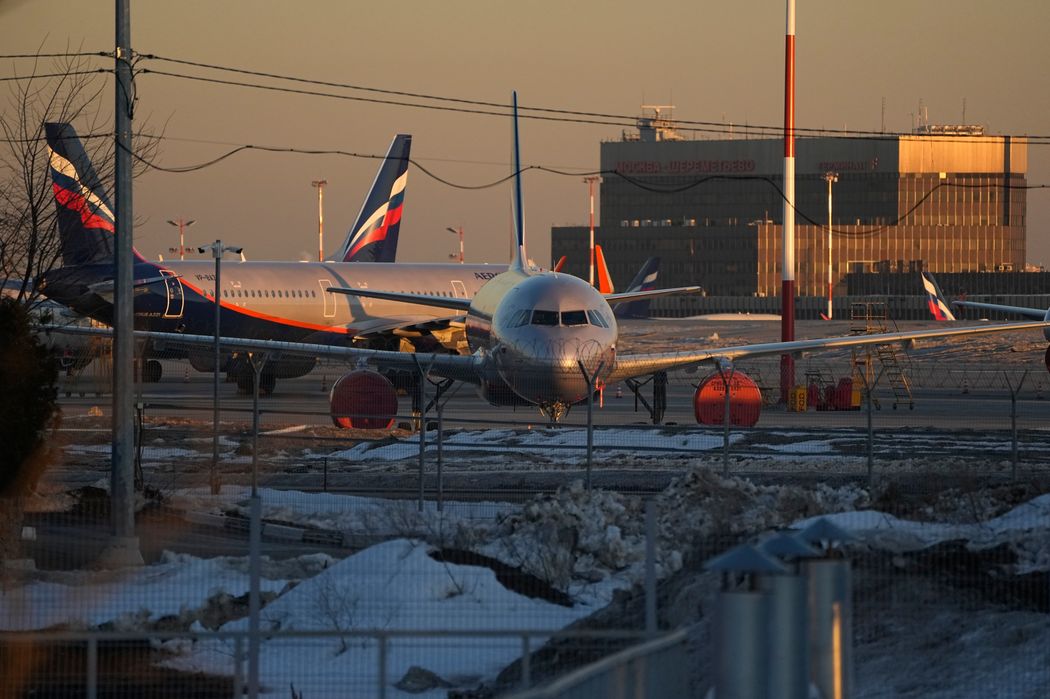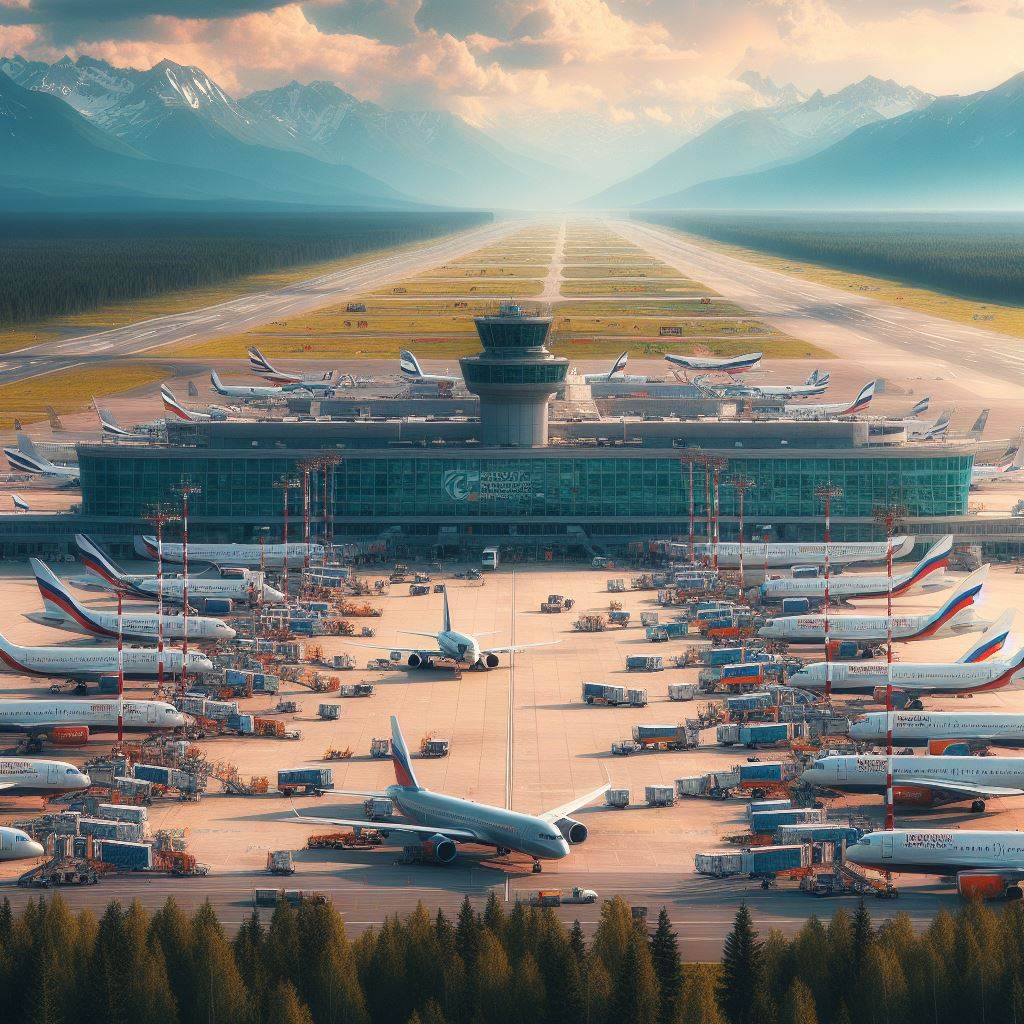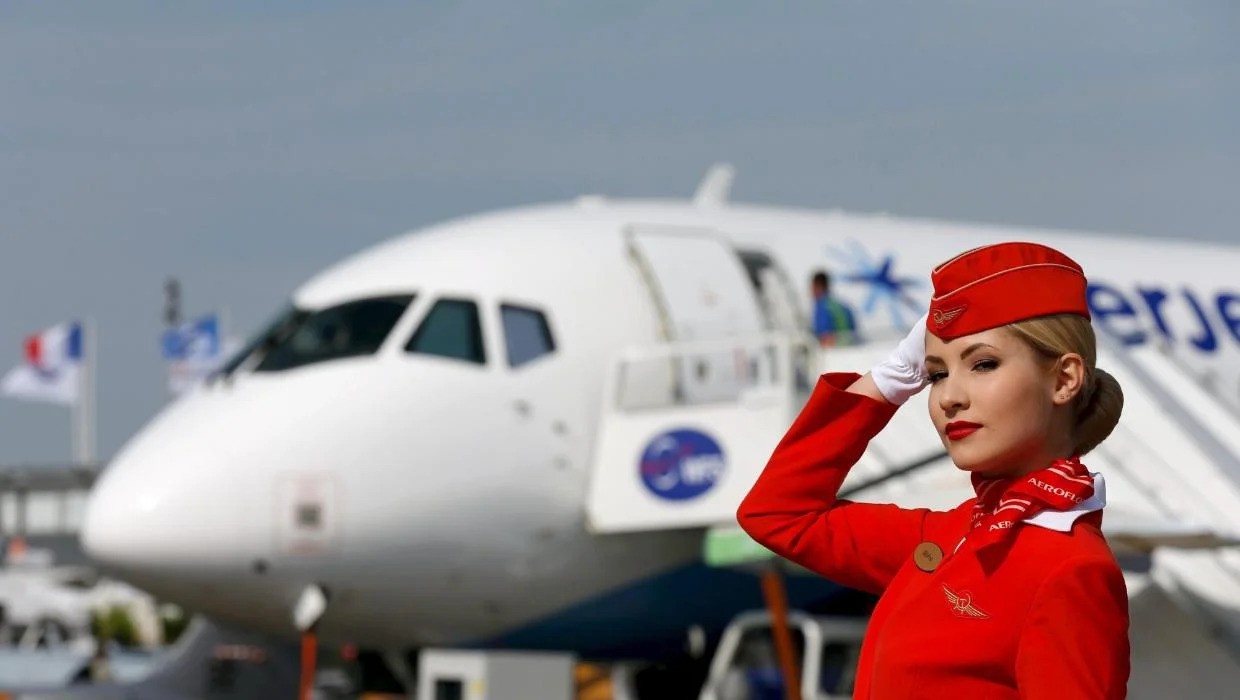Kremlin Orders Seizure of 400 Aircraft, Sparking “Largest Battle Ever”: Unexpected Retribution

Image: An Aeroflot aircraft at a Moscow airport in early 2022. (Photo: AP)
A fierce battle in the aircraft insurance business has erupted following a surprising move by the Kremlin, which issued an order to seize over 400 aircraft with a total value of over $10 billion. According to a March 2024 article in the Wall Street Journal (WSJ), this is considered the “largest battle ever” in the industry.
The majority of these aircraft, mainly of the Airbus and Boeing brands, were leased by Russian and international airlines but became stranded in Russia after Moscow launched a military campaign in Ukraine in February 2022. The responsibility for these aircraft lies with insurance companies in both Russia and the West, including major players like American International Group, Chubb, and Swiss Re.
The “Largest Battle Ever”
Some insurance companies are currently fighting against the compensation claims made by aircraft owners. They argue that the owners should have made more effort to recover their aircraft before they were seized. Meanwhile, lawyers are still debating the most fundamental question of who should bear the financial burden.
The source of this dispute dates back to the chaotic early days of the Ukraine conflict when the United States and Europe imposed sanctions on Russia, forcing aircraft leasing companies to terminate agreements with Russian airlines. This action left hundreds of aircraft in limbo.
The leasing companies have not hesitated to spend money on professional recovery teams to retrieve the aircraft upon landing at airports, but only a few have been successful. The Kremlin ordered Russian airlines not to return these seized aircraft. Many of them have since been registered in Russia and are now operating on domestic flights or flying to foreign countries friendly to Moscow.
Kremlin’s Retribution

Image: Russia has seized hundreds of Western aircraft in retaliation for initially losing 76 aircraft due to Western sanctions. (Photo: BC)
According to RIA Novosti, as of November 2023, Russian Minister of Transport Vitaly Savelyev revealed that by March 2022, less than a month after Russia launched its military campaign in Ukraine, nearly 800 foreign-leased aircraft had been transferred to the Russian national registry—a figure almost double what WSJ mentioned.
Savelyev stated that Russian President Vladimir Putin allowed Russian airlines to register leased aircraft from foreign companies. This means that Russian airlines have the ability to seize leased aircraft from abroad and use them for domestic routes.
“We have taken assets from the other side,” Savelyev said, referring to Moscow’s retaliation after losing 76 passenger aircraft due to Western sanctions. He admitted that at that time, Russia was initially caught off guard.
Russia’s Strategy: Owning Aircraft at a Low Cost

Image: Russia is employing a strategy to own aircraft at a low cost. (Photo: Stuff)
After seizing foreign aircraft and allowing airlines to register them in Russia, Moscow faced a thorny issue: most of the aircraft have dual registration, which is prohibited under the Chicago Convention or the International Civil Aviation Organization’s Convention on International Civil Aviation.
Therefore, Russia needs to employ a different strategy to legally own foreign aircraft. One of the proposed solutions is reconciliation agreements with insurance companies.
According to WSJ, aircraft leasing companies usually require airlines to purchase insurance for the aircraft from a local insurance company (e.g., Russian airlines purchasing insurance from a Russian insurer). The local insurance company then shares the risk by selling it to international reinsurance companies. The leasing companies themselves also have their own insurance to protect against risks such as war and other hazards.
While foreign insurance companies are still arguing about compensation payments, a series of Russian insurance companies have paid over $2 billion in reconciliation agreements for more than 100 aircraft.
For example, Irish aircraft lessor AerCap Holdings, after recording losses of up to $2.7 billion due to the stranded aircraft in Russia, agreed to leave 67 out of their 113 aircraft in Russia and received $1.3 billion in insurance money.
The reconciliation agreements seem to value the aircraft lower than their pre-war value. AerCap stated that they received around 70% of the insured value for the aircraft the previous month. Analysts believe that Russia is trying to legally obtain the seized aircraft at a low cost.
However, this strategy is not always successful. Some aircraft leasing companies, such as Carlyle Aviation Partners, continue to demand $700 million in compensation (for 23 aircraft) in a Florida court. They have rejected proposals from Russian insurance companies.
To read more informative articles about finance and economics, visit Business Today.
